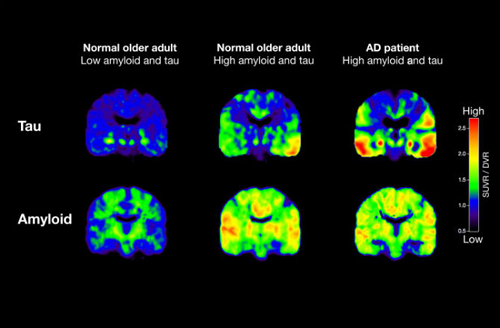Tracy Staedter | For the first time since Alzheimer’s disease reared its ugly head, scientists have found a potential tool for early diagnosis.
Positron emission tomography, or PET, scanners can be used to track the progressive stages of the disease, even in adults who show no symptoms, report scientists at the University of California, Berkeley.
Women With Alzheimer’s Face Faster Decline Than Men
In a study — the results of which are published this week in the journal “Neuron” — William Jagust and his team conducted PET scans on 53 adults. Of the group, five people were young adults aged 20 to 26, 33 were healthy retired adults aged 64 to 90 and 15 were aged 53 to 77 and already showed signs of Alzheimer’s disease.
Scientists studied the brains scans, looking for the accumulation of two proteins, tau and beta-amyloid, that have been linked to Alzheimer’s in the past.
The stages of protein buildup has been studied before in the brains of people who have already died, and given a scale from 1 to 6, thanks to German researchers Heiko and Eva Braak.
Another Small Step In The Battle Against Alzheimer’s
But until the study from Jagust and his team, no one had been able to show the Braak staging in people who were still alive. Now with PET scans, they can.
“This opens the door to the use of PET scans as a diagnostic and staging tool,” Jagust said in a press release.
The scientists were also able to see a relationship emerge between the two proteins implicated.
Drone Finds Missing Elderly Man In 20 Minutes
Tau, which appears to accumulate in the medial temporal lobe, where the hippocampus and memory center of the brain are located, doesn’t begin to cause a major problem until it spreads outside that area. At that point, Alzheimer’s begins. And it seems that the amyloid protein plays a role in the spread of tau.
“All I can say is that when amyloid starts to show up, we start to see tau in other parts of the brain, and that is when real problems begin,” Jagust said. ”We think that may be the beginning of symptomatic Alzheimer’s disease.”
More work needs to be done before such a tool can be used in a clinical setting, but Jaust and his team are optimistic that they’ve pinpointed a technology that could have a positive affect on our aging population.




